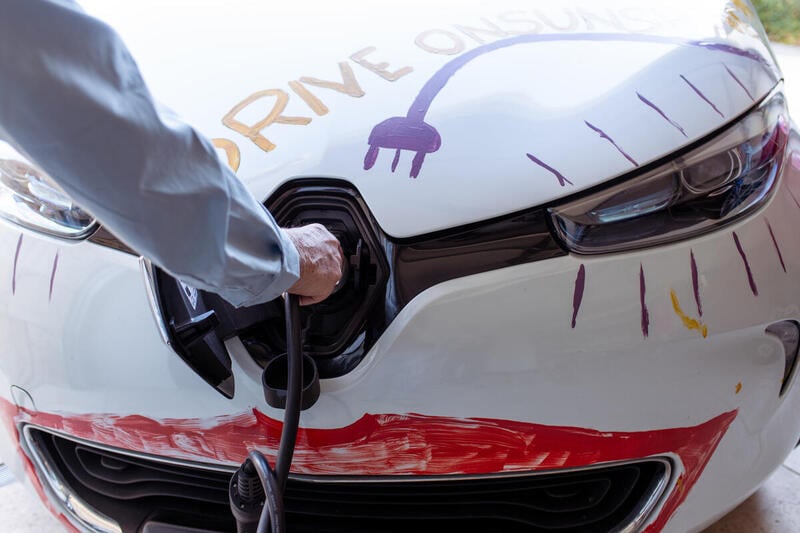This report set out to identify key updates since 2018 relating to; Samsung’s growth and impact; growth and electricity use trend of the ICT sector including climate impacts; corporate uptake of renewable energy; renewable energy policy barriers and opportunities in Korea and Vietnam; and Samsung’s progress with its 100% renewable energy pledge. The analysis presented in this report can serve as a foundation for the identification of priority goals and actions that, when implemented, would place Samsung among the ranks of companies leading the fight against climate change starting 2021.
Greenpeace evaluated Samsung’s achievement as partial in this report. In 2020, renewable energy represented 17.6% of Samsung’s overall energy mix and scope 2 emissions have decreased in 2019 as a result. But, in 2019 the result credits almost 66% use of less impactful options including unbundled RECs in the target markets. In addition, Samsung is yet to extend its pledge beyond 2020 and the majority of Samsung’s total energy use – 82% – is still generated by fossil fuels and mainly in Korea and Vietnam where Samsung’s electricity use and associated emissions are rising steadily due to ongoing investment in new and expanded production facilities driven by demand for products. Scope 3 emissions accounting for suppliers and logistics also continued to rise year on year from 2017-19.
Key Findings
1. Based on its scale of business and impact on the overall economies of Korea and Vietnam, Samsung Electronics is in a position to lead sustained advocacy efforts for improved access to and investment in renewable energy capacity in Korea and Vietnam.
2. The ICT sector can play a critical role in curbing rising global emissions both by reducing its own emissions by quickly adopting renewable energy and by introducing innovative platforms and advanced technologies such as 5G and smart-grid technologies to help reduce emissions and improve the energy efficiency of other sectors.
3. Multinational corporations who lead climate actions are accelerating the transition to cleaner, renewable energy sources by; setting aggressive 100% renewable energy targets for their global operations by 2030 or earlier in line with climate mitigation goals laid out in the Paris Agreement; setting 100% renewable energy targets for their supply chains; providing financial incentives to suppliers for committing to renewable energy transitions; and implementing the most impactful renewable energy sourcing options such as corporate PPAs and direct investment for large-scale solar and wind projects that contributes to an increase of local and additional capacity. Corporations who are climate action leaders also advocate for more aggressive renewable energy targets in difficult-to-source markets.
4. An increasing number of RE-friendly policy options are being made available to industrial consumers of electricity in both Korea and Vietnam. Korea has recently introduced corporate PPAs and Vietnam is about to introduce direct PPAs and solar and wind auctions in 2021. As more market barriers are being removed, it will make it easier for heavy-volume industrial electricity consumers to meet their renewable energy goals through solar and wind-generated energy and accelerate the energy transition in Korea and Vietnam.
For further information, please check the full report



